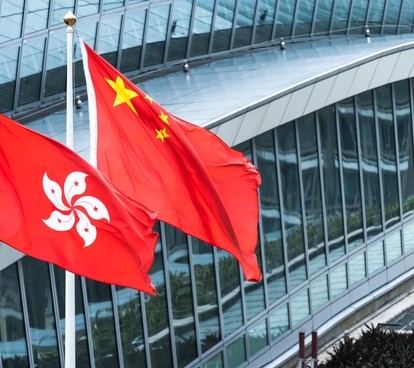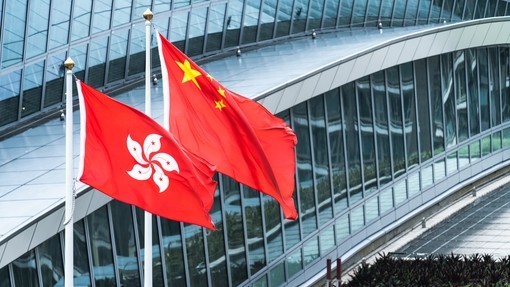The Mainland Judgments in Civil and Commercial Matters (Reciprocal Enforcement)
Ordinance came into effect on 29 January 2024

The Mainland Judgments in Civil and Commercial Matters (Reciprocal Enforcement)
Following our recently published article on the Reciprocal Enforcement, Damien Laracy and Nicole Wong set out the practical ways Ordinance may affect businesses in Hong Kong.
The newly-implemented and much-anticipated Mainland Judgments in Civil and Commercial Matters (Reciprocal Enforcement) Ordinance (Cap. 645) (‘Ordinance’) is one of the cornerstones of the mutual legal assistance framework between Mainland China and the Hong Kong Special Administrative Region (‘Hong Kong’). This developing framework operates on a reciprocal basis and consists of nine arrangements that enhance cross-border procedural assistance, arbitration-related assistance and reciprocal recognition and enforcement of judgments between Mainland China and Hong Kong.
The Ordinance activates one of the nine arrangements, namely the Arrangement on Reciprocal Recognition and Enforcement of Judgments in Civil and Commercial Matters by the Courts of the Mainland and of Hong Kong signed in January 2019. The Ordinance will supersede certain parts of the existing reciprocal enforcement regime under the Mainland Judgments (Reciprocal Enforcement) Ordinance (Cap. 597) (‘Old Regime’).
We set out below the key features and the practical ways in which the Ordinance may affect how your business is conducted in Hong Kong.
- Registration mechanism. Applications can be made to the Hong Kong Court of First Instance to register Mainland judgments that are within the scope of the Ordinance (and vice versa in accordance with Mainland law). Once registered in Hong Kong, the Mainland judgment is recognized in Hong Kong as conclusive in proceedings in respect of the same cause of action between the same parties, and may be enforced as if it were a judgment from a Hong Kong court. Likewise, Hong Kong litigants looking to realize a judgment debt could see a more transparent and straightforward reach to assets in Mainland China.
- Expanded range of judgments registrable. Under the Old Regime, only monetary judgments could be registered. Under the new Ordinance, registration of judgments for both monetary and non-monetary relief, including those given in respect of certain types of disputes over intellectual property rights, and compensation or damages payable in criminal proceedings, is permitted.
It is important to note that some types of judgments are expressly excluded from the Ordinance, including judgments in respect of excluded matrimonial cases (eg divorce, custody or maintenance of a child), excluded intellectual property disputes (eg tortious disputes over patent infringement), insolvency or bankruptcy proceedings, and ‘choice of court agreements’ made before 29 January 2024. Some of these excluded judgments may be registrable under other Ordinances though, such as the Mainland Judgments in Matrimonial and Family Cases (Reciprocal Recognition and Enforcement) Ordinance (Cap. 639), and under the Old Regime.
- Exclusive jurisdiction no longer required. Under the Old Regime, it was necessary for the underlying contract of the dispute to contain an exclusive jurisdiction clause whereby the parties agreed to submit to either the exclusive jurisdiction of the courts in Mainland China or Hong Kong. Instead, the Ordinance now imposes a jurisdictional requirement in respect of the original proceedings for the registered judgment (ie the original proceedings need to have had sufficient connection with Mainland China). The Hong Kong court will consider factors such as the defendant’s place of residence and business, whether the contractual dispute and place of performance of the contract was in Mainland China, and whether there was any jurisdiction agreement etc.
- Broader range of courts. Instead of a limited number of designated courts under the Old Regime, the Ordinance allows judgments from a wider range of courts and tribunals. In relation to Hong Kong judgments for recognition and enforcement in Mainland China, in addition to the Court of First Instance etc, the Competition Tribunal, Labour Tribunal and Small Claims Tribunal are all specified Hong Kong courts within the scope of the Ordinance.
As Hong Kong is the only jurisdiction to have a reciprocal arrangement of such depth and wide coverage with Mainland China, the Ordinance is a mechanism that should reduce the need to litigate the same disputes in two jurisdictions. It should streamline Hong Kong originating judgment enforcement and asset recovery processes in Mainland China.
From contractual and pre-dispute decision making, to obtaining a Hong Kong judgment for recognition and enforcement in Mainland China (or to register a Mainland judgment in Hong Kong), Hill Dickinson is well placed to advise you and your business. Please feel free to reach out to our team for further discussion.






